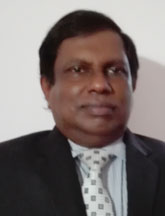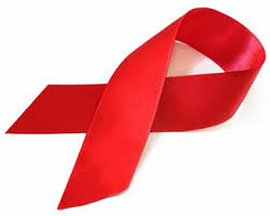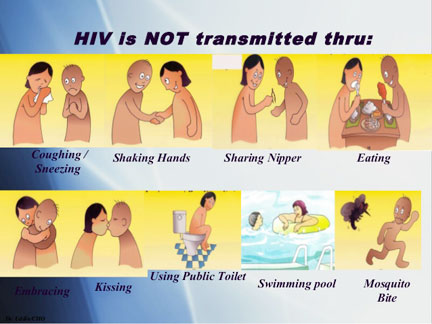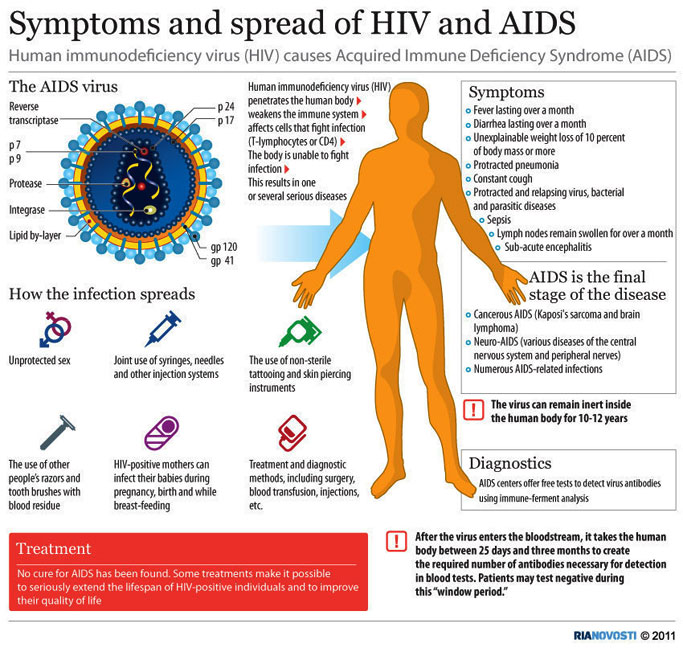|
December 1 is World AIDS Day:
Risky sexual behaviour, main cause for HIV/AIDS
If you lead a reckless lifestyle get yourself tested today for
early treatment and better prognosis:
By Carol Aloysius
 |
|
Dr Sisira Liyanage |
 The estimated figures of persons living with HIV/AIDS in Sri Lanka
compared to most countries in the region, stand at a little over 3,000
persons. Compared to other South Asian countries, these figures are
undeniably low. But how credible they are, considering the surge in the
number of people leading risky lives is the big question. The fact that
not all such persons voluntarily get themselves screened for HIV or any
Sexually Transmitted Disease(STD) and that means the numbers available
are under reported and more or less confined to those officially
recorded from Venereal Disease Clinics that dot the country. The
solution thus lies in prevention. The estimated figures of persons living with HIV/AIDS in Sri Lanka
compared to most countries in the region, stand at a little over 3,000
persons. Compared to other South Asian countries, these figures are
undeniably low. But how credible they are, considering the surge in the
number of people leading risky lives is the big question. The fact that
not all such persons voluntarily get themselves screened for HIV or any
Sexually Transmitted Disease(STD) and that means the numbers available
are under reported and more or less confined to those officially
recorded from Venereal Disease Clinics that dot the country. The
solution thus lies in prevention.
The Sunday Observer spoke to the Head of the National STD/AIDS
Control Programme, Dr Sisira Liyanage. According to him HIV/AIDS is
still a disease that is shrouded in mystery in Sri Lanka.
Ignorance of basic facts on reproductive health and the absence of a
comprehensive sex education programme for youth is largely to blame, he
said. He answers FAQs about the disease.
Excerpts…
Q: Although HIV/AIDS is one of the world’s leading killer diseases,
many are still ignorant about it. What is HIV/AIDS?
A: HIV is the acronym for Human Immunodeficiency Virus while AIDS is
the acronym for Acquired Immune Deficiency Syndrome
Q: What is the global count of HIV/AIDS and how does Sri Lanka
compare with this figure?
A: The estimation is: 35 million people living with HIV and 2.5
million new HIV cases found per year. In Sri Lanka, the estimate is 3300
(2300-5700) living with HIV
Q: How is it transmitted ?
A: Mainly through unsafe sex (95%). From mother to child the
transmission is four percent while it is less than 1% through
intravenous transmission.
 Q: How long does it take for the HIV virus to enter the human body? Q: How long does it take for the HIV virus to enter the human body?
A: It will enter through the mucous membrane of the sexual organ, the
mouth or anus and directly enter the blood stream. Initially for the
first three to six months they will have mild symptoms like fever, lymph
node enlargement and a sore throat. Symptoms and signs of AIDS will take
three to 10 years to come out in the open.
Q: How is the virus isolated?
A: Although the antibody in a blood test appears from three to six
months, an antigen test can detect the disease after two weeks. A
combination of antibody and antigen detecting tests are now available.
Q: What are the commonest modes of transmission in Sri Lanka?
A: The commonest mode of transmission is through unsafe sex. Sixty to
80% is by heterosexual transmission, while 20-40 through male homosexual
or bisexual transmission. Transmission can also be from mother to child
(4%), and less than 1% through invasive procedure.
Q: Who is most at risk?
A: Female sex workers (FSW) and their clients, (MSM)-men who have sex
with men and intravenous drug addicts and drug addicts. Male homosexuals
are at a bigger risk because they practice penetrative sex such as anal
sex and oral sex.
Q: How vulnerable are those who have abnormal sex such as rectal
intercourse or oral sex?
A: Those engaging in rectal intercourse are more vulnerable because
the HIV virus can enter through the mucous membrane and enter the blood
directly through the damaged membrane of the rectum. If the sexual
secretion contains the HIV virus, it can enter through the mucous
membrane of the mouth. HIV virus concentrationis high in sexual
secretion.
Q: Blood transfusion and intravenous injections administered without
proper precaution – are they also a risk factor?
A: In Sri Lanka, less than one percent transmission is through
invasive procedure such as injections, surgical procedure and blood
transfusion done in a non sterile environment. All voluntary blood
donations are screened for HIV.
 Q: Can HIV activate other lateral diseases like TB ? Q: Can HIV activate other lateral diseases like TB ?
A: HIV patients are vulnerable to TB. All HIV patients are sent for
TB screening.
Q: Doctors sometimes refer to ‘a window period’ in AIDS transmission.
What is it?
A: When the HIV virus enters the body it can be detected through a
blood test. But the HIV virus may not be detected for some time – (two
weeks to six months) because antigen and antibody concentrations are low
and at an undetectable level during this period.
Q: Are there tests to detect the virus during this ‘window period’?
A: Yes. We can detect positivity by doing a test after two weeks.
Antigen detection tests, are available in all STD clinics and can be
detected if the tests are done after two weeks.
Q: Can an infected mother transmit the disease to her baby?
A: Now we call it as parent to child transmission (PTCT) because if
the father is positive, the virus will be transmitted to the mother. If
she is infected during pregnancy it can be transmitted to the foetus
through the placenta or during delivery or through breast milk. We have
76 children detected through this method. As a percentage it will be 4%
of the total.
Q: What are the symptoms of HIV/AIDS in 1)Babies 2) Older children
3)Adults? Do they vary?
A: There are four stages in HIV infection. The guidelines are given
by the WHO
In the early stage, symptoms are similar to any other viral disease.
But if you are in the risk category or had an undetected sexual
relationship, a blood test will detect if you have contracted HIV.
In the latter stage, symptoms such as weight loss without valid
reason, continuous fever without reason, symptoms of TB such as a
persistence cough, unresolved respiratory infection, unresolved
diarrhoea. At the later stage the patient develops AIDS, the immune
system weakens and any infection will worsen and may end with death.
Q: What treatment does the NSACP advise patients to seek as soon as
they develop symptoms?
A: Patients diagnosed with HIV should adhere to scientifically proven
treatment. These are available only with the NSACP and is free of
charge. It is important to adhere to the treatment. When Anti Retro
Viral Treatment is taken, the viral load in the blood is undetectable
and HIV will not be transmitted to others. This treatment can be used as
a prevention too.
The immune system will improve to normal level. They can live normal
lives and life expectancy with a better quality of life is assured if
they adhered to the treatment.
With regard to alternative treatment, some patients who have stopped
our treatment and switched to traditional methods have ended with death.
So I strongly advise everyone tested positive with HIV to adhere to our
ARV treatment without opting for any other method.
Q: How successful is the outcomes of such treatment?
A: If treated early, the prognosis is better. Treatment regimes are
decided by specialist medical officers after they discuss them with
patients.
The WHO now recommends that we treat everyone irrespective of blood
CD4 cell count. Even if they are in the advanced stage, they will
respond to treatment, depending on the patient’s parallel health
conditions.
Q: Is there a cure for HIV? Any new break throughs?
A. There is no complete cure found yet. But if you adhere to
treatment it will help in future drugs or procedure for a permanent
cure.
Q: I understand local scientists at the Peradeniya University have
developed a cure for HIV/AIDs with promising results.
The Vice Chancellor of the University Prof. Upul Dissanayake has gone
on record saying clinical trials would be carried out next year. If they
are proved successful, Sri Lanka would be the first country to offer
that long elusive cure for AIDS. Your comments?
A: Any break hrough is most welcome as there is still no cure for
this illness. The Ministry of Health and government must encourage these
scientists to do more research, especially since the results are
promising.
Q: Common myths and taboos that surround HIV/AIDS?
A: Following are some of the most common myths:
*Traditional method will cure AIDS.
* All HIV positive patients have at some time or the other had a bad
reputation. One of the biggest obstacles in controlling the disease and
encouraging more people to attend our free STD clinics is the stigma and
discrimination against them.
Q: Condoms play a major role in prevention. How are you promoting it?
A: As 95% of HIV is transmitted through unsafe sex, using condoms
correctly can prevent contact with the HIV virus concentrated sexual
secretion. We have a package of services for ‘risk population health
education, testing and supply of condom through peer leaders with NGO
and community organizations. Social marketing of condom also encouraging
Q: The current prevalence rate is still low in Sri Lanka at .01%, but
recently there has been a slight increase in certain areas which you
have said is a cause for concern. What are the reasons?
A: The number has been increasing in Sri Lanka during the past five
years, mainly due to increased screening, increase in risk behaviour,
and more people travelling abroad and being exposed to the HIV virus.
Q: There have been suggestions of compulsory examination of people
for HIV/AIDS being introduced in Sri Lanka. Your comments?
A: Even now 50% of people detected with HIV do not come for testing.
They can’t be forced to do so. However, by educating and counselling
them, in the past two years 90% of them have come for treatment.
Q:Your message to the public?
A: The best method is prevention. Abstain from unsafe sex. Both
parties should confine sex to one partner. Use condoms correctly in
penetration sex if you have more than one partner. Ensure sterility in
invasive procedure. Be aware about HIV and behave in a responsible
manner to avoid getting it. If you plan to get pregnant and are in a
high risk category, get an HIV screening test before planning for
pregnancy. Don’t discriminate HIV positive people they have equal rights
like others. If you suspect that you have been infected with HIV then
test today, tomorrow will be too late.
Dr. Sisira Liyanage Director National STD/AIDS Control Programme, Sri
Lanka. Telephone - 0094 112695183 Mobile - 0094 714783914 |

